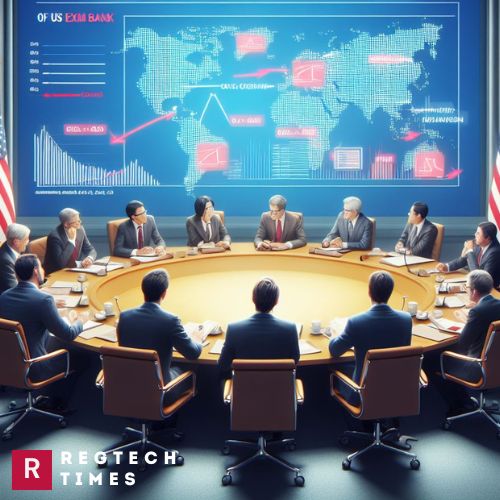The Export-Import Bank of the United States (US Exim) finds itself under scrutiny following revelations from its Office of Inspector General (OIG) regarding significant oversights in the approval process of a deal involving commodities giant Trafigura.
Despite warnings of potential fraud risks, US Exim provided up to US$360 million in cover for Trafigura’s operations, sparking concerns about the efficacy of the agency’s due diligence procedures and its commitment to upholding transparency and integrity in international transactions.
Background of the Deal
In a bid to support US liquefied natural gas (LNG) exports to European buyers impacted by the disruption in Russian gas supplies following the conflict in Ukraine, US Exim entered into agreements to back revolving credit facilities (RCFs) extended to Trafigura by Citibank and Crédit Agricole, totaling US$400 million. The arrangement was intended to bolster US energy exports and address the energy needs of European markets amid geopolitical tensions.
US Exim Oversight Failures Highlighted
However, a recent report from US Exim’s OIG has shed light on critical lapses in the agency’s due diligence process. Despite receiving warnings about potential corruption involving Trafigura in Brazil, US Exim proceeded with the deal without adequately addressing the fraud risks. The OIG report indicated that US Exim appeared to have disregarded fraud-related information when approving the transactions with Trafigura, raising questions about the thoroughness of its risk assessment procedures.
Trafigura’s Legal Troubles
The OIG’s concerns come in the wake of Trafigura’s admission of guilt in violations of the United States’ Foreign Corrupt Practices Act. Trafigura pleaded guilty to participating in a bribery scheme spanning from 2003 to 2014, involving payments to Brazilian officials in exchange for lucrative contracts with state oil company Petrobras. This admission of wrongdoing resulted in Trafigura paying a substantial criminal fine of US$80 million and forfeiting over $46 million as part of a settlement with the US Department of Justice.
Despite these legal troubles, Trafigura continues to benefit from cover provided by US Exim, with policies set to remain valid until July 2024. The persistence of Trafigura as a recipient of cover raises serious concerns about US Exim’s oversight and risk management practices, as well as its commitment to upholding ethical standards in its dealings with counterparties.
Calls for Transparency and Accountability
The OIG’s intervention has ignited calls for greater transparency and accountability in US Exim’s operations. The heavily redacted nature of the OIG report, citing exemptions under the Freedom of Information Act, has raised questions about the agency’s commitment to openness and disclosure. Advocacy groups and non-governmental organizations (NGOs) have urged US Exim to strengthen its anti-corruption measures and terminate cover for Trafigura in light of the corruption allegations.
Revisiting Due Diligence Practices
The revelations from the OIG report underscore the critical importance of robust due diligence practices in safeguarding against fraud and corruption in international transactions. US Exim’s apparent failure to address fraud-related warnings effectively underscores the need for a comprehensive review and enhancement of the agency’s risk management framework. Moving forward, US Exim must prioritize transparency, accountability, and adherence to anti-corruption standards to restore confidence in its operations and uphold its mandate of supporting US exports and economic growth while maintaining the highest ethical standards.
Increased Oversight and Future Implications
Following the OIG report, US Exim is likely to face increased scrutiny and calls for reform. The report’s findings suggest a need for enhanced oversight of the agency’s due diligence processes to ensure that fraud risks are adequately addressed and mitigated. Additionally, the controversy surrounding the Trafigura deal may have broader implications for US Exim’s relationships with other counterparties and its reputation as a reliable export credit agency.
The Role of NGOs and Civil Society
NGOs and civil society organizations play a crucial role in holding institutions like US Exim accountable for their actions. Their advocacy efforts, including calls for transparency and anti-corruption measures, contribute to fostering greater accountability and integrity in the international finance sector. Going forward, continued engagement and collaboration between NGOs, civil society, and regulatory authorities will be essential in promoting ethical practices and preventing fraud and corruption in international trade and finance.
Conclusion
The US Exim-Trafigura controversy serves as a stark reminder of the importance of robust oversight and adherence to ethical standards in international finance. It underscores the need for export credit agencies to exercise due diligence and vigilance in assessing and mitigating fraud risks associated with their transactions. As US Exim addresses the fallout from the Trafigura deal, it must redouble its efforts to uphold transparency, accountability, and integrity to maintain the trust and confidence of stakeholders and fulfill its mandate of facilitating US exports and economic growth on the global stage.


